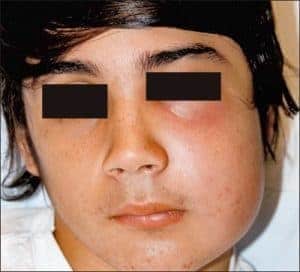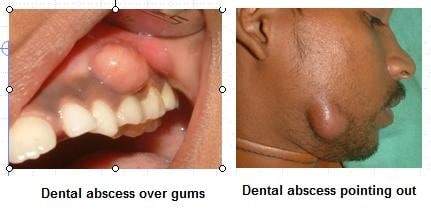What Can go Wrong with Root Canals? What are the common Root Canal Complications?
 A Root Canal by Definition: a filling of the canals of the roots of a tooth. The canals are the hollow centers of the tooth and roots where the living tissue inside the tooth, aka “Pulp”, used to reside. A root canal tooth is a tooth that is no longer alive or is in-fact dead. The filling material is most often a rubbery material called “gutta percha.” The goal of a Root Canal is to clean dying or dead tissue and bacteria and fungus out of the tooth and to seal it up and prevent re-infection. The goals of Root Canal treatment are idealistic because the tooth being porous, much like a sponge, is impossible to completely clean free of bacteria. So the truth of the matter is, bacteria and fungus will likely proliferate inside the tooth and slowly leak out into the underlying bone. A Root Canal treatment is a less than perfect treatment and can present future challenges with jawbone infections, immunological issues and consequent pathological problems.
A Root Canal by Definition: a filling of the canals of the roots of a tooth. The canals are the hollow centers of the tooth and roots where the living tissue inside the tooth, aka “Pulp”, used to reside. A root canal tooth is a tooth that is no longer alive or is in-fact dead. The filling material is most often a rubbery material called “gutta percha.” The goal of a Root Canal is to clean dying or dead tissue and bacteria and fungus out of the tooth and to seal it up and prevent re-infection. The goals of Root Canal treatment are idealistic because the tooth being porous, much like a sponge, is impossible to completely clean free of bacteria. So the truth of the matter is, bacteria and fungus will likely proliferate inside the tooth and slowly leak out into the underlying bone. A Root Canal treatment is a less than perfect treatment and can present future challenges with jawbone infections, immunological issues and consequent pathological problems.
Problems with root canals can be divided into different categories:
- Root Canal Problems that happen after root canal treatment has been completed – usually referred to as a “Root Canal Failure.”
- Complications that can occur while getting a root canal
Problems After Root Canals Have Been Competed:
- Tooth and Root Fracture. Root Canal teeth are not longer alive and over time they can get more brittle and be prone to fracture. Imagine how a dead tree has branches that are more brittle and break more easily
- Changes in Gum and Bone Health. Removing the blood and nerve supply to a tooth has it’s consequences. A dead tooth no longer received nutrients from the body or sensation from nerves.
- Tooth Turns Color to brown, black or grey. As bacteria and fungus proliferate, the tooth fills with discolored micro-organisms and their by products. As the tooth darkens, it is increasingly likely to abscess as more leakage of bacteria, fungus and toxins is occurring.
- Bone Infection Vertical Damage and loss of bone. Failure of a Root Canal always involves bone loss related to bacteria infecting the bone. The most common cause of bone infection is loss of bone immediately underneath the roots of the tooth. Vertical bone loss can be easily repaired with a simple bone graft to fill the small hole underneath of the tooth root.
- Bone Infection Vertical and Horizontal loss of bone. This damage amounts to loss of a volume of bone including all the bone from the cheek or tongue side of the tooth. This bone damage is a lot more difficult to repair and usually involves more healing time and advanced bone grafting techniques to repair.
- Bone Infection with infection spreading into another soft tissue space such as the floor of the mouth or cheek. The spread of infection into a new space absolutely requires antibiotics and the patient will need close monitoring and may need IV antibiotics and hospitalization. Once the infection is cleared, advanced bone grafting surgery will be required to properly repair the bone damage and loss.
- Bone infection with infection spreading into the sinus. Again, advanced bone grafting techniques will need to be used to repair infection that has spread from a root canal tooth into the sinus. Sinus blow-out infections can be amount the most difficult to repair and in fact, repairs may involve multiple bone grafting surgeries. Some sinus infections from root canals may never heal properly, making tooth replacement with dental implants impossible.
- Bone infection with infection spreading into the cranium. These infections can be life threatening. Anytime, a patient has swelling,pain and any increase in temperature, tiredness, fatigue, the patient should be immediately referred to the emergency room for evaluation and treatment of infection.
Advanced Bone Grafting Techniques have gotten a lot better with Natural Bone Grafts and Platelet Rich Fibrin or PRF Treatments.
Natural Bone Grafting. Platelet Rich Fibrin or PRF with Dental Implants
Complications while getting a Root Canal:
- cracked tooth may be discovered. Many cracks cannot be repaired and the Root Canal May need to be aborted. The tooth will need to be extracted. Most dentists who do Root Canals will not remove teeth. You may find yourself needing to schedule a tooth removal on a different day with a different dental surgeon.
- an small instrument may break off in the root of a tooth making root canal treatment difficult or impossible to satisfactorily complete.
- The root of a tooth or a wall of the tooth may be perforated with a dental instrument. This complication can be difficult if not impossible to repair.
- The root canal may not work at all. Meaning you get the Root Canal and the next day it hurts and it never gets better. Usually, the tooth is cracked and the dentists cannot see the crack. This can happen even to the best dentist. Sometimes cracks are not visible or in a place where they cannot be seen. Additionally, even the bests dentists cannot save every tooth. Many of the above problems can happen to no fault of the careful dentist.
- No guarantees in life people other than Death and Taxes.


Is an implant an alternative to a Root Canal?
That is up for debate, but I will let you have the decision. Technically a Root Canal is an alternative to “Save a Tooth.” An Implant does not save a tooth. The life expectancy of a Root Canal from my experience is maybe 5-10 years on the average. More often at the end of the 5-10 year period the Root Canal Tooth will need to be extracted. And then what? Oh, that’s right, you can do an Implant if the Root Canal hasn’t damaged your jaw bone too much. So at this point over 5-10 years you will spend 3x as much time in the dental chair to get a Root Canal and an Implant vs — What would things look like had you just gotten the implant? 1/3 the time in the dental chair and 1/3 the dental bill. Most implants last a lifetime.
One more thought—Implants have not been around forever and some root canals last a lot longer than 5-10 years. Proceed with caution and if you make a decision with all the facts, you cannot make the wrong one.
